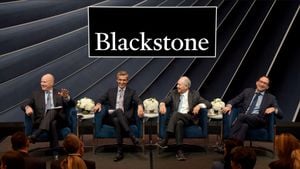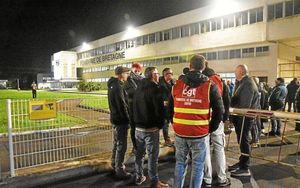Sam Kuffel, a burgeoning weather forecaster for CBS 58 Milwaukee, was fired on January 22, 2025, following her inflammatory social media comments about Elon Musk's behavior during Donald Trump's inauguration. The posts sparked significant backlash, rocking not just her career but igniting discussions on freedom of speech and accountability.
The controversy began when Kuffel took to her personal Instagram account on January 21 to criticize Musk's gestures, which she described as "Nazi salutes." Posting various images and expressing her thoughts bluntly, she said, "Dude Nazi saluted twice. TWICE. During the inauguration. You f–k with this and this man, I don’t f–k with you. Full stop." These remarks quickly gained traction, drawing eyes from diverse audiences and stirring up heated discussions.
Critics were not slow to respond. Among them was conservative radio host Dan O'Donnell from 1030 WISN, who condemned Kuffel’s comments as "vulgar" and accused her of "spreading lies" about Musk. Such pushback culminated just one day after Kuffel’s posts with CBS 58 confirming her termination from the station, erasing her bio and imagery from their website by Wednesday afternoon.
At the heart of this issue was Musk’s behavior during his speech, when he put his right hand to his chest before extending it outward, reminiscent of gestures linked historically to the Roman Empire and adopted by authoritarian regimes. The Anti-Defamation League described Musk’s actions as "awkward" and urged caution against jumping to conclusions about their interpretation. Yet, some experts sided with Kuffel. Historian Ruth Ben-Ghiat weighed in, asserting, "That was a Nazi salute – and a very belligerent one too," affirming Kuffel's raised concerns.
Social media erupted post-firing, with polarized opinions surfacing. Supporters of Kuffel rallied behind her, arguing her termination was emblematic of broader trends suppressing dissent and criticism of influential figures. Critics countered with claims of irresponsibility, labeling her comments as incendiary without basis. Meanwhile, Musk, himself, opted for humor, sidestepping the more serious allegations concerning his salute.
Kuffel had built a considerable local following over five years at CBS 58, gaining recognition not only for her weather forecasts but also for relatable social media updates on Wisconsin sports. She joined the network after stints at WAOW-TV, making her name as the midday meteorologist before transitioning to CBS 58.'
This incident also raised questions about the role of public figures and their accountability—namely, how they navigate and manage public perceptions related to their actions. Musk’s provocative movements were reported widely, but they sparked questions about the intent behind them. The discussion surrounding them, catalyzed by Kuffel's remarks, reflects broader societal divides about speech, expression, and the line between accountability and censorship.
Notably, Kuffel’s Instagram, thereafter, was set to private, but the situation has escalated beyond her personal account, leading many to speculate about repercussions for saying controversial things about prominent public figures. She had voiced concerns calling attention to what she perceived as alarming behaviors from someone with such significant cultural influence—a critique met with bitterness by some and commendation by others.
For many, this raises questions: To what extent should public figures enjoy freedom when it compensates for accountability to their actions? Each mention of Kuffel's post seems to conjure diverse reactions from fervent support to vehement opposition from those across the political spectrum.
While Kuffel remains silent about her abrupt exit, her case amplifies discussions on the consequences of challenging powerful individuals, especially when the platform is social media, which can magnify voices instantaneously. The tension evident within the public discourse following her firing speaks to how deeply intertwined societal, political, and personal narratives have become, especially with someone like Musk at the center.
This event serves as a flashpoint for broader discussions on how social media shapes real-world consequences and how power dynamics can dictate the narratives of public discourse, especially when coupled with the unyielding nature of some voices of dissent.
Kuffel’s experience effectively embodies the challenges of modern public discourse—prompting reflection on accountability, free speech, and the unsettling effects of power.



